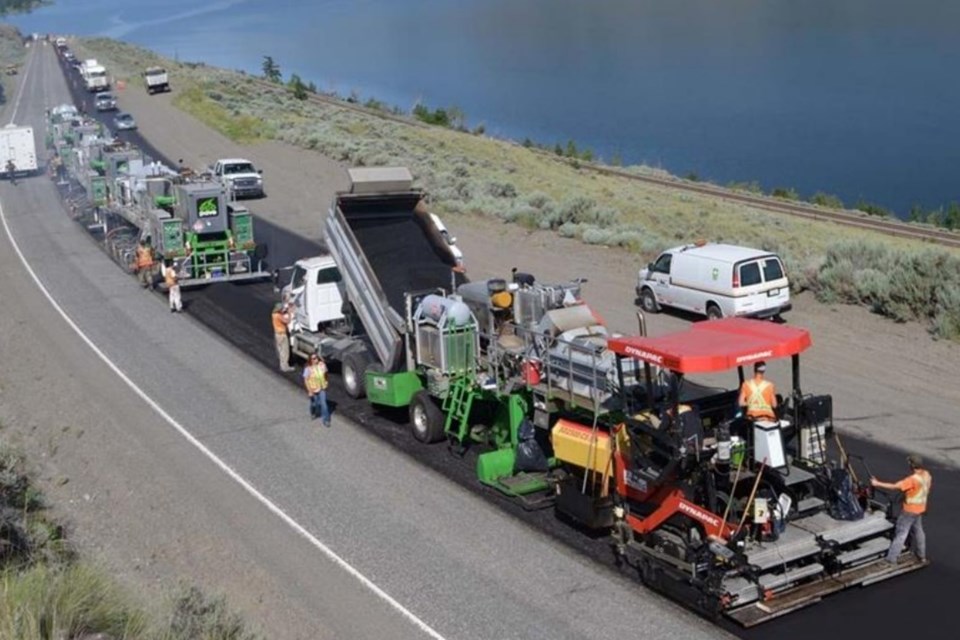Spurred by a motion from Ward 8 Coun. Al Sizer, the city’s elected officials voted earlier this week to draw $6 million from reserves to rehabilitate additional stretches of road this year.
This is on top of the 50 lane kilometres of asphalt that’s already slated to be rehabilitated as part of this year’s $79-million linear infrastructure investment.
The additional $6-million investment will be well spent, city traffic and asset management supervisor Joe Rocca told this week’s finance and administration committee meeting.
“The city’s roads, particularly class 1-3 roads, have been severely impacted and are in immediate need of remediation,” he said, noting that this past season’s freeze/thaw cycle was longer than usual and degraded roads as such.
Just how this $6-million pool of funding will be spent on city roads was broadened during this week’s meeting, with Ward 11 Coun. Bill Leduc successfully adding a hot-in-place asphalt recycling option to the mix. This is in addition to two methods that were already on the table, which include:
- Spreader-laid patches, which involve removing large areas of deteriorating and cracking asphalt around a patch and replacing it with asphalt that has an “increased compaction and smoothness that can be achieved with a mechanical spreader.” If the entire $6 million were spent using this method, approximately 28.5 lane kilometres of pavement would be repaired.
- Surface treatment, which seals existing pavement to help prevent the deterioration of a road surface. This requires a minimum of 13 lane kilometres at a cost of $1 million.
This hot in-place asphalt recycling option has been billed by the city as a cost-effective means of extending the life of roads and will allow the city to tackle additional road kilometres, Leduc told Sudbury.com after the meeting.
Further, he added that with the price of pretty much everything going through the roof, stretching municipal dollars as far as they can go has become more important than ever. The cost-effective option will also improve the bidding process.
“It’s great competition, so it’s going to put some pressure on our current contractors to really sharpen their pencils to be an aggressive bid on the $6 million,” he said.
The counterpoint to adding a hot in-place asphalt recycling component is that it’s an infrastructure renewal measure brand new to the city, which has yet to see the results of a long-awaited $2-million pilot program scheduled to take place this year. The pilot program will include a length of Municipal Road 35 stretching west of Big Nickel Road.
In a presentation to city council in July 2020, Wood Environment and Infrastructure project manager Dan Cacciotti walked city council through what the program consists of.
A long train of heavy equipment slowly makes its way down a stretch of road, which softens the top layer of asphalt, removes it, mixes the material with an adhesive rejuvenator material and then lays and compacts the material onto the road.
“If the underlying granular fill below the asphalt is at the end of its life, this process is not going to repair that,” he said, cautioning city council that “the road still has to be in pretty good shape for this to be viable” as a means of extending the road’s lifespan.
City engineering services director David Shelsted reiterated this caution to council members earlier this week, noting that the hot in-place asphalt recycling effort only works with the top 50 millimeters of pavement whereas other options are capable of digging deeper and are able to rehabilitate a broader range of road conditions.
Shelsted also expressed concern that adding a hot in-place asphalt recycling option to the tender will push back the timeline to later in the year.
In the end, Ward 8 Coun. Al Sizer, Ward 9 Coun. Deb. McIntosh, Ward 4 Coun. Geoff McCausland and Ward 7 Coun. Mike Jakubo voted against adding the option, and Leduc, Ward 6 Coun. Rene Lapierre, Ward 10 Coun. Fern Cormier, Ward 12 Coun. Joscelyne Landry-Altmann and Ward 1 Coun. Mark Signoretti voted to include it. With the final vote landing at 5-4, it carried. Their decision will need to be ratified by city council as a whole, which committee decisions almost always are.
Although hot in-place asphalt recycling has been added as an option, Leduc clarified after the meeting that its inclusion doesn’t necessarily mean it will be employed unless it’s appropriate to do so.
Despite concerns related to the option’s inclusion delaying matters, the direction of city council is for the entire $6 million to be spent on roads this year.
Tyler Clarke covers city hall and political affairs for Sudbury.com.
